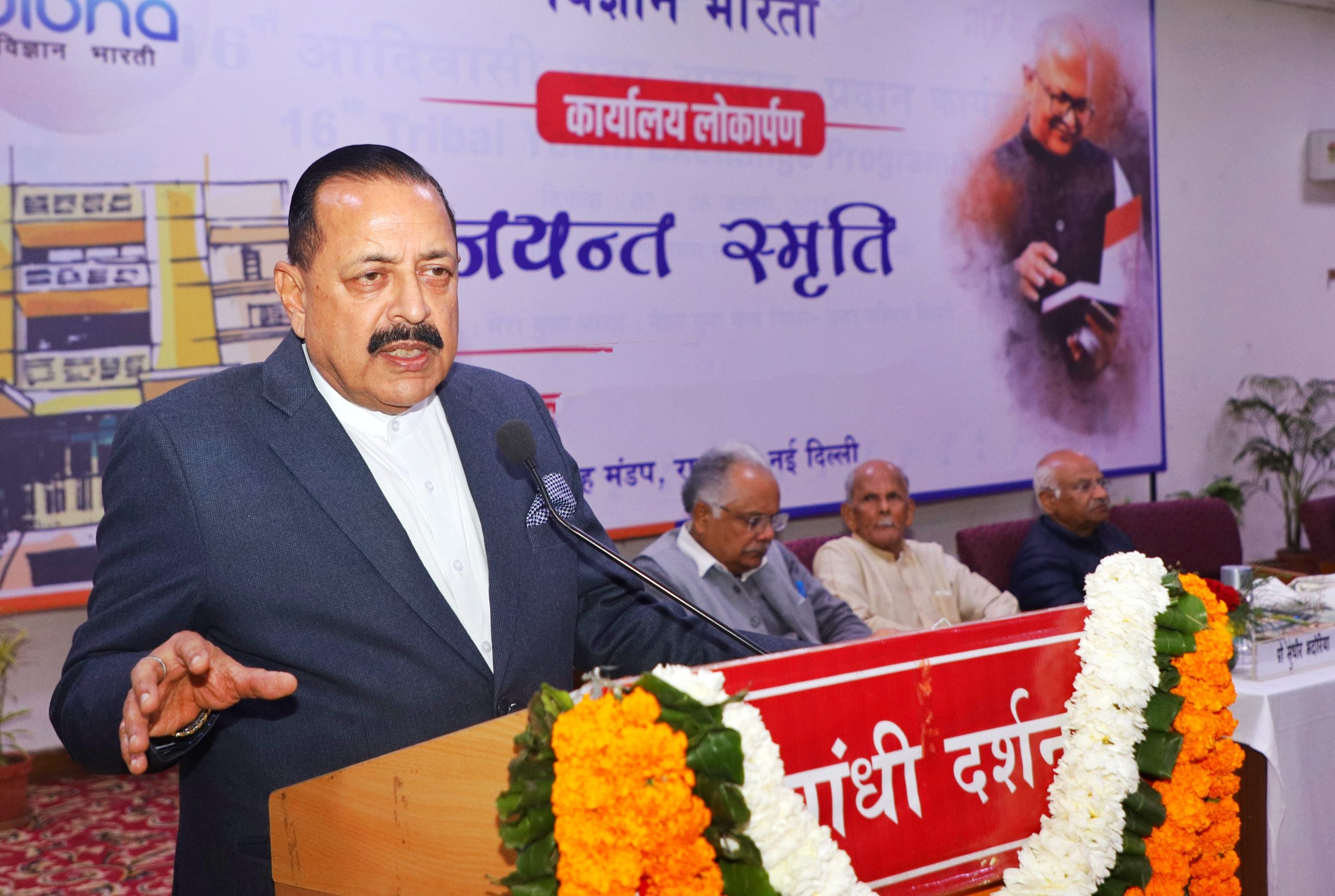NEW DELHI, Feb 9: Union Minister Dr. Jitendra Singh remarked today that India’s significant advancements are exemplified by global milestones like the “Vaccine” and “Chandrayaan”.
He made these comments during the inauguration of the new “Vigyan Bharati” premises in the national capital, noting it as a long-overdue necessity. He emphasized that this office would act as a hub for idea exchange and learning opportunities.
At the event, the Union Minister of State (Independent Charge) for Science & Technology; MoS PMO, Personnel, Public Grievances, Pensions, Atomic Energy, and Space, Dr. Jitendra Singh emphasized that India is experiencing a transformative phase in science under Prime Minister Narendra Modi’s leadership. He pointed out that the Prime Minister not only promotes but also extends steadfast support to the scientific community, equipping it with resources and fostering collaborations with non-governmental sectors to yield optimal results.
Reflecting on the progress over the last ten years, Dr. Jitendra Singh stated that while India has always possessed great scientific talent, the crucial factor of commitment and prioritization from political leadership had been lacking—an issue that is now being addressed under PM Modi’s administration.
He highlighted the substantial strides India has made, particularly in the healthcare sector. Dr. Jitendra Singh noted that India, once overlooked in curative healthcare, is now establishing itself as a global frontrunner in preventive healthcare. He proudly cited India’s achievements, such as: the development of the first DNA vaccine during the pandemic; the first indigenous HPV vaccine to combat cervical cancer; and rapid advancements in space technology, despite having a late start in the sector.
He also reaffirmed India’s dedication to global climate change initiatives, reiterating the country’s goal of achieving net-zero emissions by 2070.
Dr. Jitendra Singh emphasized the significance of the Traditional Knowledge Digital Library (TKDL), describing it as a vital repository of indigenous knowledge. He provided examples including:
The Konark Temple in Odisha, which remained structurally sound even after the super cyclone of 2000, demonstrating India’s architectural durability.
The increasing interest in traditional medicine, highlighted by the West’s exploration of homeopathy and naturopathy for potential treatments during the pandemic.
He referenced India’s achievement in utilizing steel slag for road construction in Arunachal Pradesh, in partnership with the Tata Group, drawing parallels with the enduring routes of Ajanta and Ellora that have stood the test of time.
Quoting Dr. Syama Prasad Mookerjee, Dr. Singh said, “By remaining committed to our legacy, we should not deprive ourselves of what is happening across the world.” He encouraged Vigyan Bharati to serve as an interface for recognizing initiatives and facilitating collaborations, much like IN-SPACe and BIRAC have successfully done for the space and biotechnology sectors, respectively.
He also proudly announced India’s recent pharmaceutical advancement with the development of the indigenous antibiotic ‘Nafithromycin’, establishing India as a leader in both traditional and innovative technologies.
Dr. Jitendra Singh asserted that integration is not merely an option but an essential requirement and urged Vigyan Bharati to become a key conduit for broader scientific integration. He expressed confidence that these initiatives would propel India’s ongoing ascent as a global powerhouse in science and technology.


Leave a Reply